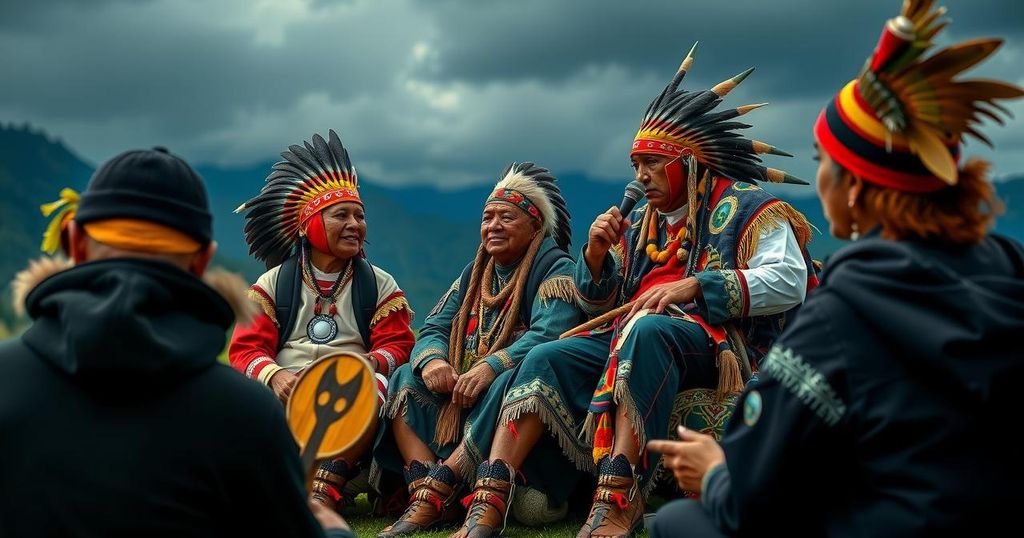Indigenous Peoples Highlight Climate Crisis and Solutions at COP29
Indigenous peoples at COP29 in Baku, Azerbaijan, are raising awareness about the severe impacts of climate change on their communities while also presenting solutions grounded in traditional ecological knowledge. Their participation emphasizes the necessity of including Indigenous voices in global discussions about climate action.
At the COP29 climate talks in Baku, Azerbaijan, Indigenous peoples from around the globe articulate their urgent concerns regarding climate change and its devastating impact on their communities. Sharing firsthand experiences of rising sea levels, deforestation, and pollution, they emphasize not only the dire consequences but also their integral role in sustainable practices that combat climate change. Through traditional knowledge and community-led initiatives, these groups are advocating for innovative solutions to address environmental challenges and safeguard both their ecosystems and cultural heritage. Their presence at the summit serves as a critical reminder of the intersection of climate action and Indigenous rights, highlighting the need for inclusion in global dialogues on ecological preservation. Indigenous populations frequently view climate change as both a consequence of global neglect and an opportunity for empowerment. With unique connections to their ancestral lands, they emphasize the importance of environmental stewardship and resource management. As stewards of significant ecosystems, their insights offer valuable perspectives on effective conservation strategies and resilience practices that can enhance broader climate action efforts across diverse regions.
The involvement of Indigenous peoples in climate negotiations highlights the unique challenges they face as a result of climate change, including extreme weather events that often threaten their livelihoods and cultural practices. These communities have historically played an essential role in environmental sustainability, having cultivated a profound connection to their ecosystems over generations. Their traditional ecological knowledge provides vital insights into combating climate-related issues, making it imperative that they are included in critical discussions at international platforms like the COP conferences.
In conclusion, the experiences shared by Indigenous peoples at COP29 underscore the urgency of addressing climate change while recognizing their invaluable contributions to environmental sustainability. Their voices not only reflect the reality of climate impacts but also offer innovative solutions rooted in traditional knowledge. It is essential for global leaders to engage with Indigenous communities to uphold their rights and integrate their wisdom into comprehensive strategies for combating climate change.
Original Source: www.sfgate.com




Post Comment